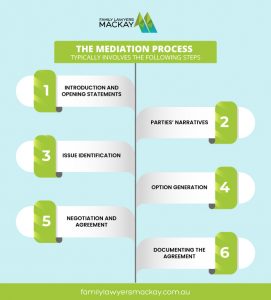Mediation, a voluntary and confidential dispute resolution process, has gained significant recognition in various legal domains. In this article, we will explore the applications of mediation in the context of elder law and estate planning in Australia. Elder law pertains to legal matters affecting the elderly, while estate planning involves preparing for the distribution of assets and wealth upon one’s death.
Mediation in Elder Law
Elder law encompasses a range of legal issues affecting older individuals, such as healthcare decisions, guardianship, and long-term care. Mediation can play a crucial role in resolving conflicts that may arise in these areas. By engaging in mediation, parties can maintain control over the decision-making process, allowing for customised solutions that address the unique needs of the elderly.
Mediation in Estate Planning
Estate planning involves creating a comprehensive strategy to manage one’s assets and ensure their distribution according to personal wishes. Mediation offers several advantages in this realm. It provides a forum for open communication among family members, reducing the likelihood of disputes and promoting harmonious relationships. Mediation can also help families navigate complex issues, such as contested wills or disagreements regarding the division of assets.
The Role of a Mediator
A skilled mediator acts as a neutral facilitator during the mediation process. They possess excellent communication and problem-solving skills, ensuring a productive and respectful environment. The mediator helps parties identify their underlying interests and guides them toward mutually beneficial outcomes. By fostering understanding and empathy, the mediator enables constructive dialogue, leading to successful resolutions.
ALWAYS KNOW YOUR RIGHTS AND KNOW WHERE YOU STAND
By consulting one of our accredited family law mackay specialists.Mediation Process for Elder Law and Estate Planning
The mediation process typically involves the following steps:
- Introduction and opening statements: The mediator sets the stage and establishes ground rules for the session.
- Parties’ narratives: Each party shares its perspective and concerns, promoting empathy and understanding.
- Issue identification: The mediator helps identify the key issues and interests underlying the dispute.
- Option generation: Parties brainstorm potential solutions and explore various alternatives.
- Negotiation and agreement: The mediator assists in negotiating terms and reaching a mutually agreeable settlement.
- Documenting the agreement: Once an agreement is reached, it is formalised in a legally binding document, ensuring clarity and enforceability.
Advantages of Mediation in Australia
Australia has recognised the benefits of mediation in resolving legal conflicts, particularly in elder law and estate planning. Some advantages of using mediation in Australia include:
- Cost-effective: Mediation is often more affordable than litigation, reducing financial burdens for all parties involved.
- Timely resolution: Mediation offers a faster resolution compared to lengthy court proceedings, allowing for efficient conflict resolution.
- Preservation of relationships: Mediation promotes open communication and understanding, preserving family relationships that may be strained by legal disputes.
- Confidentiality: The confidentiality of mediation ensures that sensitive information remains private, providing a safe space for parties to express their concerns.
Australia has established a legal framework to support mediation, including the National Mediation Accreditation System (NMAS), which ensures the competence and professionalism of mediators in the country.
Challenges and Limitations
While mediation has many benefits, it may not be suitable for all situations. Some challenges and limitations to consider include:
- Imbalanced power dynamics: If there is a significant power imbalance between parties, mediation may not provide a fair resolution.
- Complexity of legal issues: In complex cases involving intricate legal matters, mediation may require the involvement of legal professionals alongside the mediator.
- Unwillingness to participate: If one or more parties are unwilling to engage in mediation, alternative dispute resolution methods may need to be explored.
Success Stories
Real-life examples demonstrate the effectiveness of mediation in elder law and estate planning cases. One notable case involved a family in Australia facing a dispute over the division of their late parents’ estate. Through mediation, the family members were able to reach a mutually satisfactory agreement, preserving their relationships and avoiding costly litigation.
Mediation serves as a valuable tool in the fields of estate planning and estate planning in Australia. Offering a collaborative and flexible approach to dispute resolution, it empowers individuals to make informed decisions while preserving important relationships. Considering the benefits and legal support for mediation, parties involved in elder law and estate planning matters should seriously consider this alternative to traditional litigation.
ALWAYS KNOW YOUR RIGHTS AND KNOW WHERE YOU STAND
By consulting one of our accredited family law mackay specialists.Frequently Asked Questions (FAQs)
Here are some faqs and their answer on Mediation for elder law and estate planning in Australia
What is the cost of mediation in Australia?
The cost of mediation in Australia varies depending on various factors, such as the complexity of the case and the mediator’s fees. It is often more affordable than litigation, providing a cost-effective option for dispute resolution.
How long does the mediation process usually take?
The duration of mediation can vary depending on the complexity of the issues involved and the willingness of the parties to reach an agreement. Some cases may be resolved in a single session, while others may require multiple sessions spread over several weeks or months.
Can mediation be used for complex estate planning cases?
Yes, mediation can be used for complex estate planning cases. In such situations, it may be helpful to involve legal professionals with expertise in estate planning alongside the mediator to ensure comprehensive and informed decision-making.
Is mediation legally binding?
In Australia, the outcomes of mediation can be made legally binding if the parties agree to formalise the agreement into a consent order or a binding financial agreement. This provides enforceability and certainty to the agreed-upon terms.
What qualifications should a mediator have?
Mediators in Australia should possess the necessary qualifications and skills. They should be accredited under the National Mediation Accreditation System (NMAS) and have relevant experience and training in dispute resolution.














